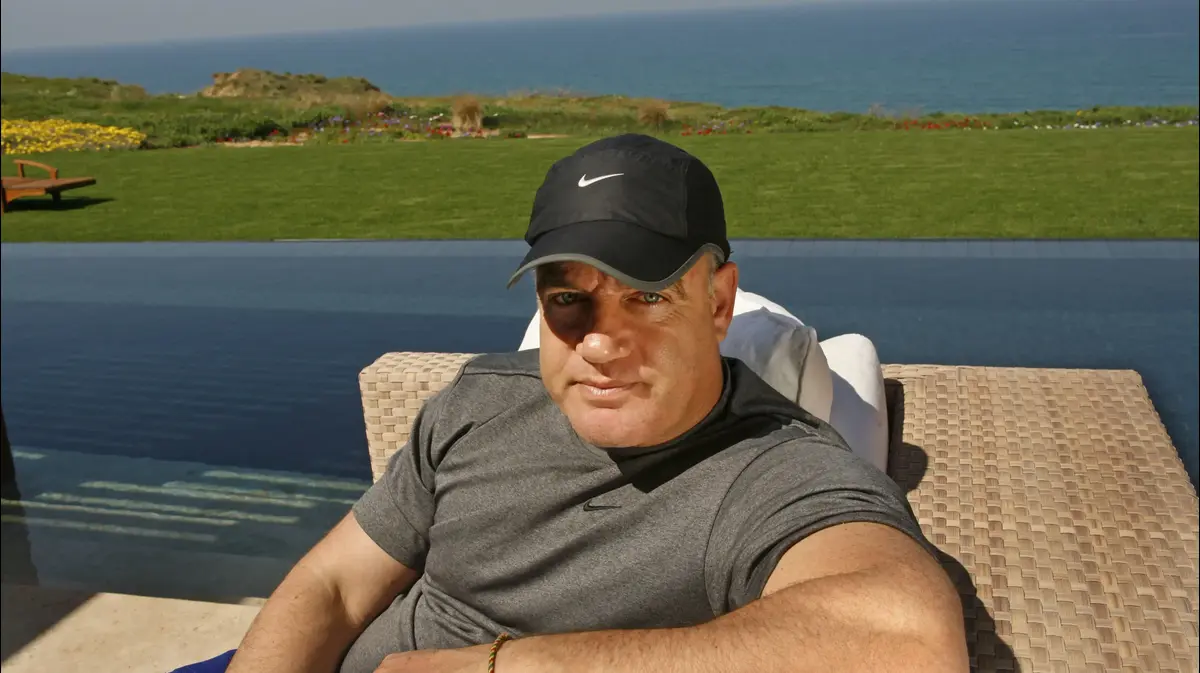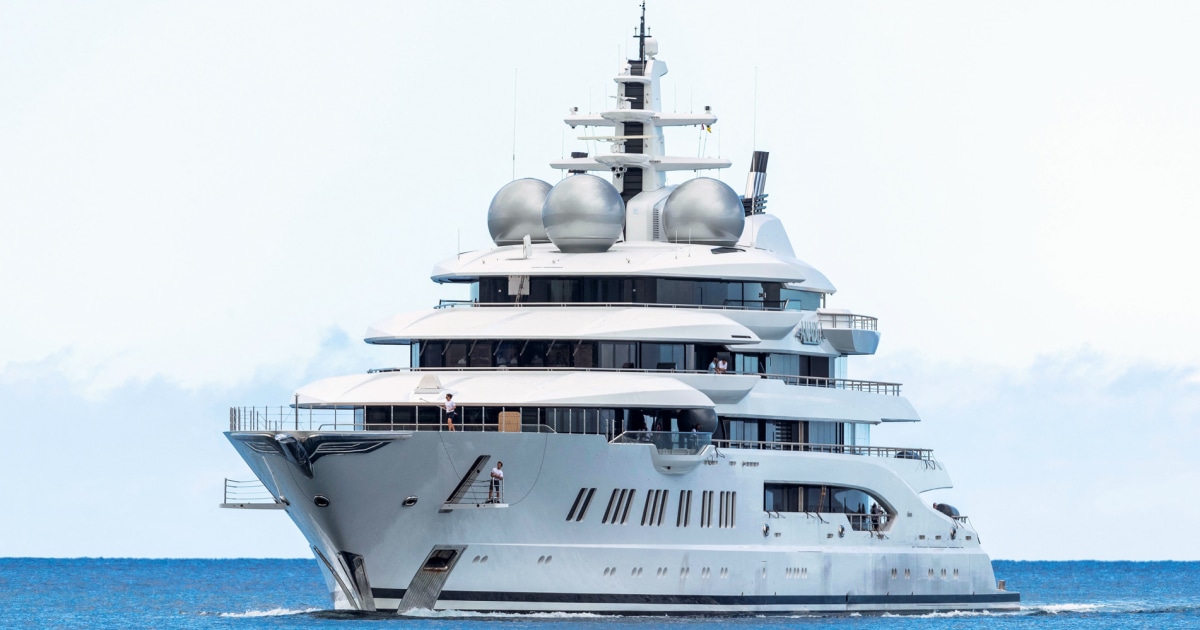Germany is intensifying the hunt for oligarchs – German billionaires are also affected
Created: 05/11/2022, 20:18
By: Lisa Mayerhofer
The yacht Dilbar is now in the port of Hamburg - and will not leave there anytime soon.
© Augst Eibner/Imago Images
The government wants to support the German authorities in implementing sanctions against Russian oligarchs.
That also scares German billionaires.
Berlin – So far, Germany has presented a rather pathetic picture in the hunt for the fortunes of the oligarchs from Russia: The three villas on Lake Tegernsee near Munich, which belong to the sanctioned billionaire and friend of Vladimir Putin, Alisher Usmanov, for example, have still not been confiscated.
The authorities are overwhelmed with the complicated network of straw people and shell companies on the tax haven Isle of Man, through which the mansions were bought.
After all, they were able to arrest the mega-yacht "Dilbar", which is said to belong to Usmanov's sister - the ship could not leave the port of Hamburg because it was overtaken.
Sanctions against Russian oligarchs: Germany lags behind
According to information from the ARD capital studio, Germany has only frozen around 95 million euros in assets of Russian oligarchs since the outbreak of the Ukraine war until March 21.
For comparison: French authorities froze assets worth 850 million euros at the same time.
French Economics Minister Bruno Le Maire said this to radio station RTL on March 20.
These include real estate, funds in private accounts and yachts.
Italy also has 848 million euros in frozen oligarch assets by the end of March.
According to Tagesschau, even Switzerland froze assets worth 7.5 billion Swiss francs (almost 7.2 billion euros) by April 7.
That puts Germany under pressure.
According to the German Press Agency, government circles said that “deficits in the enforcement of sanctions had recently become apparent”.
These deficits are now to be remedied with the new, two-stage Sanctions Enforcement Act, which the Federal Cabinet passed on Tuesday.
The aim is to adopt it before the summer break.
“Hunting oligarchs”: Government wants to pass law to implement sanctions
The investigators have their sights set on assets such as real estate, yachts and planes belonging to Russian oligarchs on German soil, who conceal their possessions using straw men and shell companies, thereby slowing down the authorities.
"What do we do with the yachts when the question of ownership is completely unclear?", it said.
"We need mechanisms to identify the assets in the first place."
The first stage of the new Sanctions Enforcement Act is intended to create the necessary mechanisms.
This should give the authorities the opportunity to "secure" assets until the question of ownership has been clarified.
As a further mechanism, an obligation to provide information is to be introduced for all those people and companies who are on the EU sanctions list.
Those affected would therefore have to report their assets in Germany themselves.
Failure to comply with this obligation could result in fines and other penalties.
Unrest among German billionaires: “Family businesses are being placed under general suspicion”
Marcus Pleyer, President of the Anti-Money Laundering Committee FATF and Undersecretary in the Federal Ministry of Finance, is hoping for further successes against financial fraud: "We are pushing the illegal money into increasingly risky ways of concealment," he said, according to Manager Magazin.
Apparently, this does not only alarm Russian oligarchs.
The German upper class does not seem to be happy about the new transparency rules, such as the obligation to provide information.
"What the authorities need is already regulated," says Rainer Kirchdörfer, head of the Foundation for Family Businesses and Politics.
“Family businesses are placed under general suspicion.
We have long since exceeded the limits of disclosure requirements.”
According to the magazine, Martin Schoeller, chairman of the family association of the Schoeller family, spoke out in favor of transparency: “In the new struggle between freedom and dictatorship, freedom is more important than money.
That's why I'm in favor of full transparency." However, the chairman of the Bavarian family business also insists on privacy: "Only the tax authorities should be able to see the data - to protect the children and to protect them from the competition." (lma/dpa)



/cloudfront-eu-central-1.images.arcpublishing.com/prisa/O645Q5IDLJHDPB6BJQCWLA23HY.jpg)






/cloudfront-eu-central-1.images.arcpublishing.com/prisa/KMEYMJKESBAZBE4MRBAM4TGHIQ.jpg)


